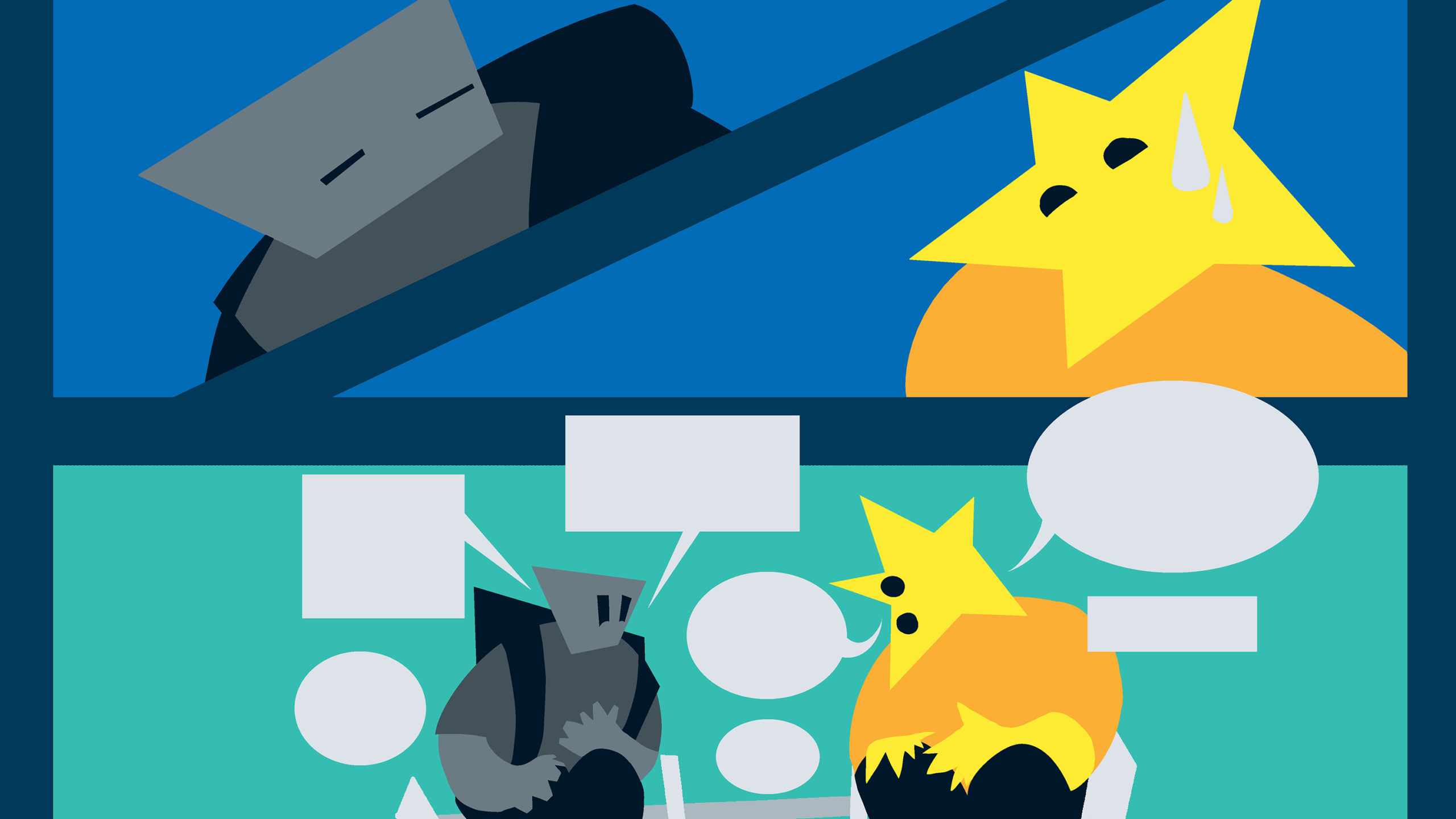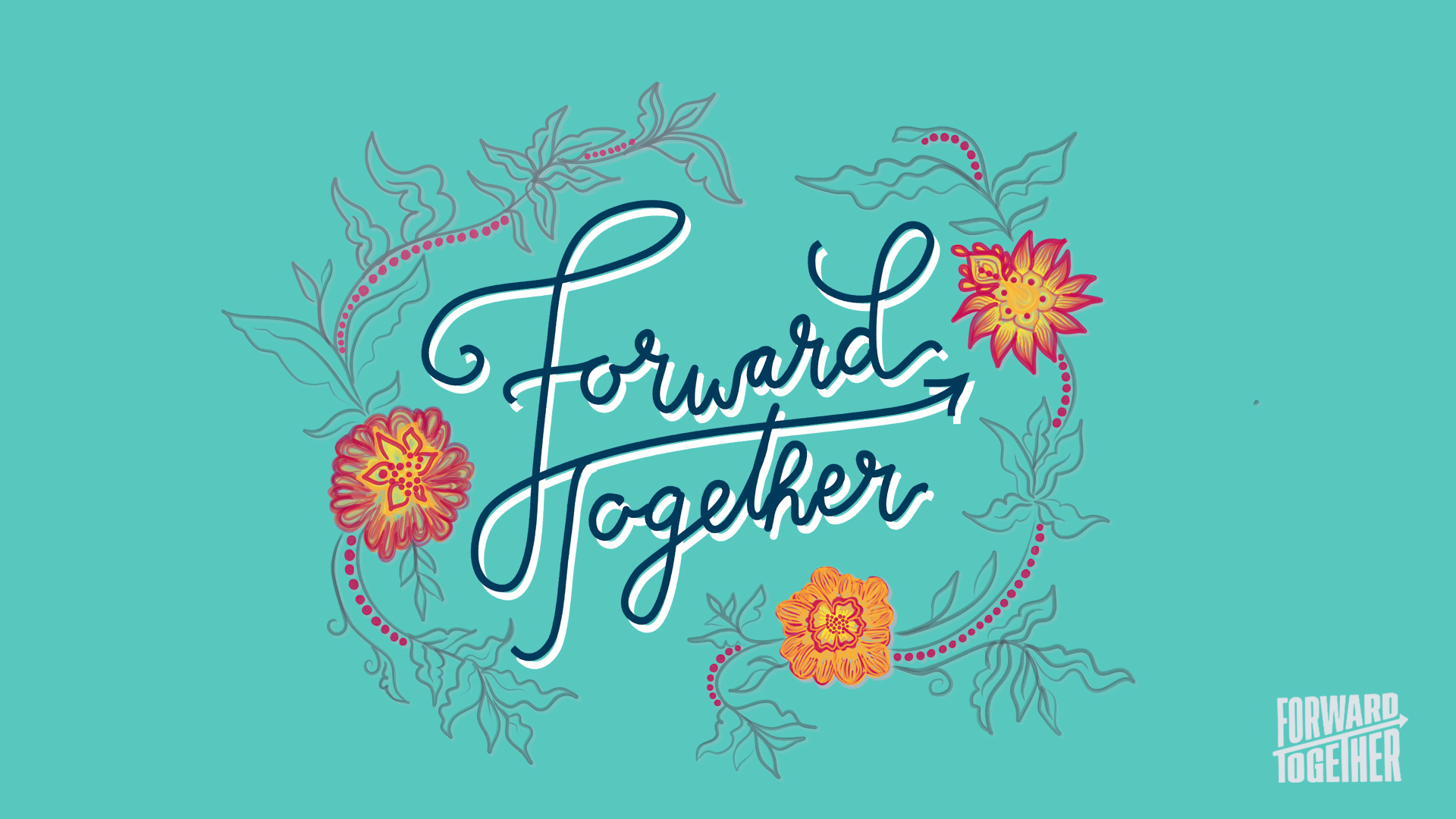Listen, support, connect: A guide to being your friend’s mental health wingman.
Remember that time you tripped and scraped your knee on the playground? You were bummed, it hurt, and maybe you even cried a little. But you knew your bestie would be there with a band-aid and a silly joke to make you smile.
Sometimes, friends need support for bumps you can’t see.
Our mental health is how we feel, think, and act, and just like your knee, sometimes it can get a little wonky. And when that happens, you can think of it like invisible scrapes on the inside. Taking care of it means doing our best to deal with challenges, finding and doing things we love, and seeking support when needed.
How can you tell if your friend’s going through a rough patch? Maybe they’re quieter than usual, or maybe they’re bouncing off the walls. Maybe they’re missing out on things they love, or maybe they seem like a different person altogether.
Forward Together Tip: If you notice something, don’t be scared to say something! Everybody needs a good friend who is looking out for them. Don’t hesitate to talk with your friend about how you can support them, or to talk with an adult that you trust if you need backup.
Here’s how to be a superstar friend when someone’s feeling low:
- Open the door with kindness. Instead of saying, “What’s wrong with you?” or “You’ve been weird lately…” try, “Hey, you seem not like yourself lately. Everything okay?” Asking your friend non-judgmental questions or sharing non-judgmental observations you have about changes in their mood makes it easier for them to open up. Choose a chill time, like grabbing a smoothie together, not in the middle of class.
- Be a super listener. Let your friend vent without interruption. Just being there and showing them you’re really trying to understand goes a long way. Ask your friend what they think they need to feel better and really listen to what they have to say. Support them in following through with their needs.
- You have to start somewhere. You may feel pressure to fix your friend’s challenges. Remember, the most helpful thing you can do is support – not take lead. Start by offering a shoulder to cry on, a funny meme to cheer them up, or a distraction like watching their favorite movie.
- Be their cheerleader! Even if you don’t understand everything they may be expressing, remind your friend you’re there to support them. Remind them how awesome they are and everything that makes them special. And that even superheroes need help sometimes, and that’s okay.
- Know when to call for backup. If things seem serious, or your friend is talking about things that concern you, it’s okay to ask for help from an adult you trust, like a parent, teacher, or counselor. Remember that it’s not your job to try to fix everything. And sometimes, you may need help from others and not take on too much at the risk of your own mental health.
Forward Together Tip: I Matter provides free virtual professional and confidential counseling for youth ages 11 and older that you can refer your friend to.
- Seek assistance right away if your friend is in crisis or is in danger of harming themselves or others. Tell a trusted adult immediately or reach Colorado Crisis Services by texting “TALK” to 38255 or calling 1-844-493-8255.
Remember, you’re not alone in this. Tons of teens struggle with mental health, and just like a scraped knee, it needs care and attention to heal. Be the friend who offers that band-aid, that silly joke, and that reminder that they’re never alone. You’ve got this, superstar friend!
Check out more of our resources and tips for teen mental health.
SHARE THIS RESOURCE
Forward Together Team
We are the Forward Together Team - a group of youth and adults that work together to help every young person in our state feel more connected and lead healthier lives through one key factor: great relationships.





